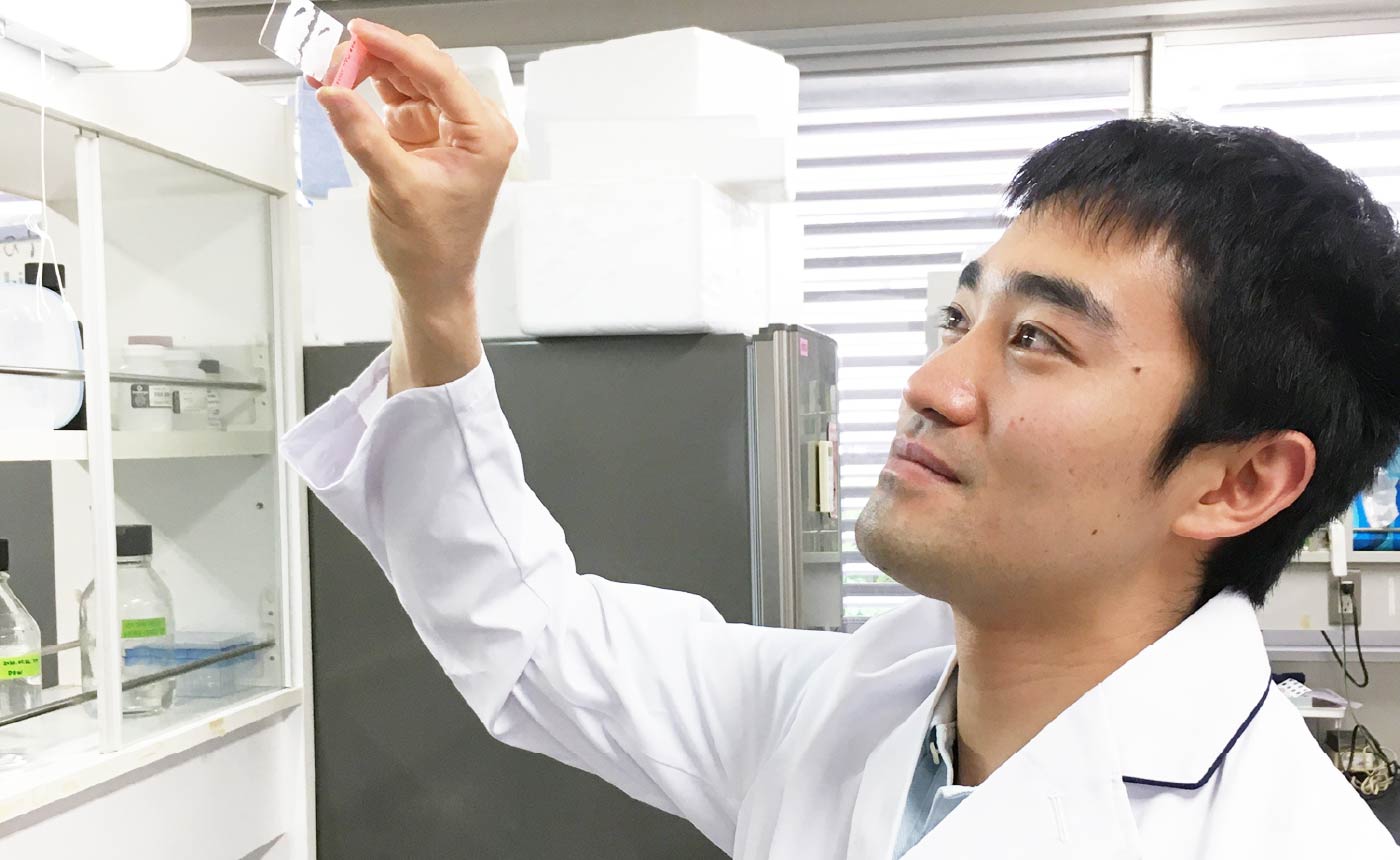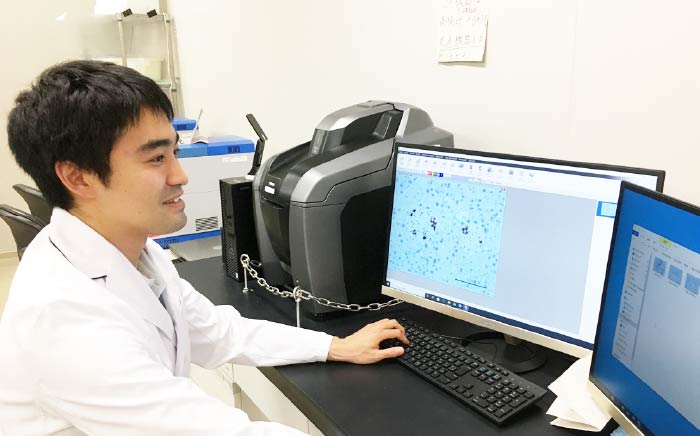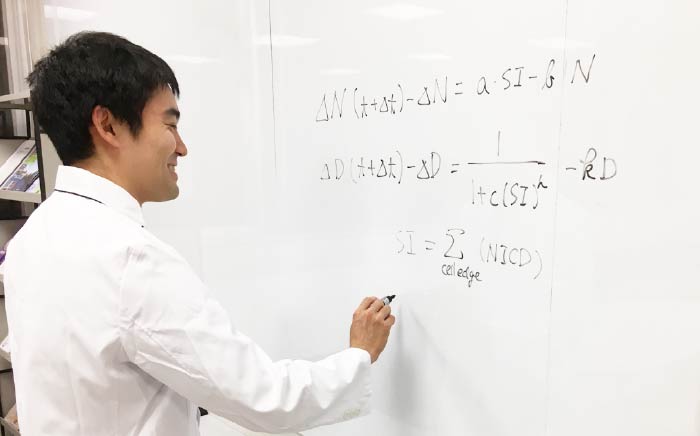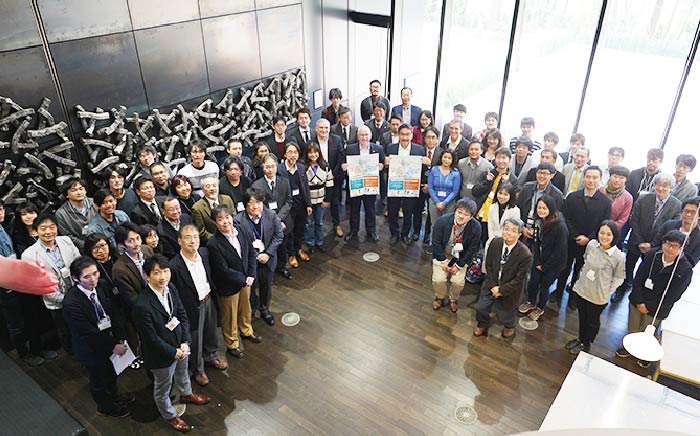- Fields of study:
- Anatomy / Mathematical Science
- Mentors:
- Dr. Satoru Takahashi / Dr. Hiroyasu Ando

Into the unknown of the human body with multiple discipline
I received my MD in 2017 and worked in a hospital for two years before enrollment. I saw beautifully coordinated structures in the anatomy course when I was a medical student. After the course, I engaged in a cell biology laboratory for three years. These experiences made me pursue the rule behind the development of the human body. Although experiments bring many insights, they tend to be qualitative. I thought that describing the dynamics of development in a quantitative way is crucial to deeply understand the human body – that’s why I chose Humanics. It was fortunate that Humanics provides a variety of opportunities. I use a huge laboratory animal center for my experiment. In addition, I am collaborating with several mathematicians who cultivate my mathematical skills. This outstanding system enables a cutting-edge experiment and computer science. You will encounter with the ‘unknowns’ of the human body as you learn about it. The problem is that you can understand them only in a way you look at them. You have your own scopes. I am looking at the specimen under the microscope thinking the developmental dynamics where a signaling pathway contributes to the formation of the structure. This is because I am studying mathematics, which is beyond my imagination when I was a medical student. You can start your new study from graduate school. Broaden your horizons in Humanics!
[Time table of an ordinary day]

Microscopic observation is always fun. You will see the coordinated biological structures and wonder the mechanics generating the structures.

Computer simulation provides information on dynamics of a signaling pathway. C++ coding became my favorite after enrollment in Humanics.

Variety of people forms a team in Humanics. We enjoy communication across the disciplines and challenge ZERO-to-ONE breakthroughs.
